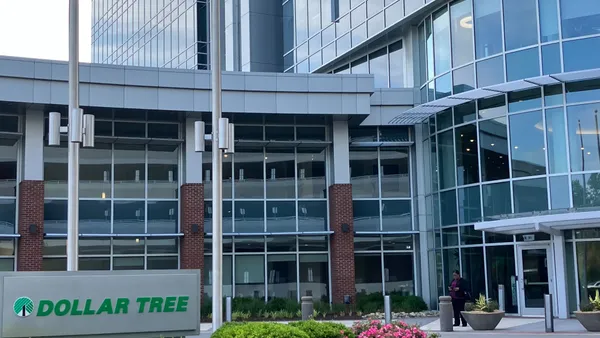Dive Brief:
- J.M. Smucker's fourth quarter earnings for 2018 significantly missed Wall Street expectations, Food Dive reported last week, which the company attributed to weak demand in a variety of its brands.
- The company also blamed higher-than-expected freight costs (likely due to rising rates and the capacity crunch) and recalls of its Gravy Train dog food products for the disappointing earnings results.
- According to the earnings call transcript, Smucker's pet food segment profit decreased 13% YoY, and "nearly one half of this decline was attributable to the product recall costs in the quarter," CFO Mark Belgya said.
Dive Insight:
Recalls are always frustrating for a company and its suppliers, so going about it the right way is key. As studies in other industries have shown, poor supplier relationships can severely diminish a company's financial health and short-term trajectory.
One recent example is Sears' disputes with supplier Whirlpool, which eventually ended their relationship in October 2017. By delaying supplier payments and foregoing vendor insurance, Sears alienated suppliers and worsened its own financial condition.
When Toys R Us filed for bankruptcy, its suppliers were quick to demand repayment and returned inventory, but didn't get all of their money or inventory back. Rebuffing suppliers in this way not only damages relationships, but also hurts a company's chances of rebounding from a tough situation and sets back suppliers trying to establish new partnerships.
Whether a company is dealing with bankruptcy or recalls, transparency with suppliers should take precedent, if only to preserve brand image in a business-to-business environment. The better a company communicates with its supplier regarding adjustments to the supply chain, the better off all parties involved will be.
Apple's recent warning to suppliers to produce 20% fewer iPhone parts in anticipation of diminished iPhone demand is a good example of communication with suppliers to ensure supply chain success.
As Rich Weissman writes for Supply Chain Dive, transparency with suppliers about a change in demand not only preserves one's own supply chain from shocks, but it also helps suppliers prepare to meet adjusted needs. It's an opportunity to strengthen supplier relationships and temper one's supply chain.













